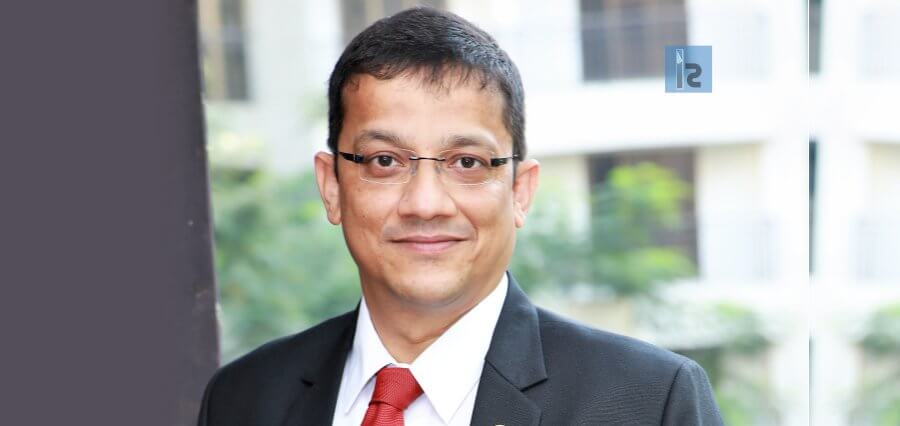Over the last few decades the Indian healthcare industry has grown in leaps and bounds from clinician’s par excellence and multispecialty surgeons who have featured on international news channels for performing complex surgeries to innumerable medical facilities that boast of having the most advanced technologies and equipment, India can be pitted against any medical facility in any developed country. While people from all over the world flock to India for treatments, surgeries, and procedures, many Indians still find healthcare an extremely expensive and inaccessible affair.
As a doctor and a consultant who has been involved in hospital management for 19 years, I am going to share some of the many challenges that the Indian healthcare industry needs to overcome to become a beacon of light and a refuge to the billion plus population. For me the biggest challenge that we face in our Indian healthcare industry as of today is in providing “Access to Affordable Quality healthcare”.
Access to Healthcare
“Access” to healthcare is one of the biggest challenges faced in India. As per published statistics at whatever site you look at for this data, the numbers of doctors, nurses and hospital beds required per 1000 population is way below the mark, and if we break it down to rural Vs urban population the statistics are even more alarming. There is a higher concentration of healthcare facilities and services in urban areas whereas a majority of the population still lives in rural areas which means they have little or no access to healthcare and the availability of emergency healthcare is non- existent.
Affordable Healthcare
The second challenge that most Indians face is the price factor. How affordable is quality healthcare in India and how many people have medical insurance? Research states that only 20-25 % of people have some form of health insurance and once again the urban areas outscore against the rural areas. The new government policy “National Health Protection Scheme” which aims at providing healthcare insurance to an additional 41% of our population has been implemented thus ensuring that the people who do not have health insurance and cannot afford healthcare will now have access to healthcare. The numbers are huge, the cost involved is phenomenal. This scheme is a giant step forward in the right direction and a game changer of magnanimous proportion.
Quality Healthcare
In the last decade the awareness of quality healthcare and accreditation programs like JCI, NABH, NABL, have become popular in India. While getting accredited may be a milestone for many hospitals the awareness on quality has come at a cost. I have repeatedly stressed throughout my career that quality means doing the right thing 24/7, 365 days of the year especially when no one is looking. Accreditation is a sort of validation that hospitals are doing things correctly. Sadly, accreditation has taken precedence over quality and now the focus is on getting accredited and using that accreditation symbol to attract patients. More often hospitals go all out to score well on the accreditation survey. The data recorded is not as per practice observed but as per what would look good on a survey. It is more of a performance put forth for “those five / three days” of accreditation (depending on which accreditation survey the hospital is undergoing). My question to hospitals seeking the accreditation symbol is, if the accreditation symbol is just a validation of the hospital maintaining high standards in quality and performance, why would you want to even display or flaunt that? Shouldn’t you be pursuing quality and excellence irrespective of accreditation especially when it comes to people’s lives? I have not seen hotels displaying a symbol saying dine here because food is prepared hygienically or airlines saying fly with me because we are accident proof, yet healthcare organizations proudly exhibit their accreditation symbols on everything thing they can. Shouldn’t hospital be safe all the time. Accreditation has made the hospital system more efficient and made hospitals raise their standards of quality but a good hospital that cares for their patients will offer quality healthcare whether or not they are accredited and these hospitals will always have an overflow of patients.
Multidisciplinary Involvement and Talent Drain
Paramedical associates like nurses, pharmacists, dieticians, physiotherapist and technicians play an important role in delivering holistic and complete care. These healthcare professionals spend the most amount of time with the patient pre and post treatment. In spite of their long hours of labor do they get the recognition, respect and credit for the work they do? Indian nurses are sought out all over the world which in itself is a testimony of their clinical skill, dedication and hard work. The question is why hospitals in India are not able to retain their nurses/ other paramedical associates? Why do these associates study here but prefer to go out of the country to work? Is it the poor remuneration as healthcare is still viewed primarily as a physician’s domain? This needs to be addressed by the healthcare industry to limit the number of paramedical associates moving out which will help in our goal of providing accessible, affordable and quality healthcare to one and all.
Once the healthcare industry in India deals with these challenges, it will not just grow and glow on the global platform, it will also ensure that all Indians will be able to enjoy the benefits of unlimited access to affordable quality healthcare.
About the Author
Dr Clive Fernandes is the Group Clinical Director of Wockhardt Group of Hospitals. He is an expert at ISQua and a Consultant with Joint Commission International (JCI) for over 13 years and has provided Consultation Services in healthcare organizations across the world.


